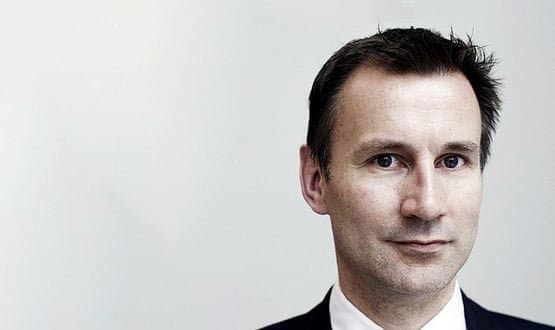It will become a criminal offence for NHS providers to supply false or misleading data about their performance, the health secretary has said.
In a speech on patient safety delivered today, Jeremy Hunt also said he wanted the NHS to be the first healthcare system in the world to publish the relative likelihood of a harm-free patient experience across every hospital in the country.
He said safety in the NHS was not as good as it should be as 3,000 people died last year because of harm done by the health service.
While this was a tiny proportion of the 3m people treated in the NHS every week, he acknowledged, he also said it meant 500,000 people were being unnecessarily harmed every year.
Hunt said that in order to improve safety, the health service must foster an “open and transparent culture where problems are always aired and never swept under the carpet."
"We are introducing a new duty of candour on all providers to be open and transparent with patients when things go wrong," said Hunt. "Indeed, it will be a criminal offence for any provider to provide false or misleading data."
In his speech, Hunt emphasised the positive effect of publishing performance data. This is credited with dramatically improving survival rates from heart surgery and, as of next month, rates will be published for ten surgical specialties.
It emerged this month that surgeons would be able to opt out of submitting performance data for these new tables.
Hunt said today that it took time to get the risk adjustment right, alongside proper analysis of the data to reflect the role of both individuals and multi-disciplinary teams.
“But when we know the data is robust, it is only right that the public should know if a surgeon chooses to withhold his or her performance data – and people can draw their own conclusions,” he added.
The NHS also needed a better understanding of how proper measurement works, including the ability to identify things that harm patient safety and things that do not.
This would involve accurately tracking safety across different wards and specialties in a hospital.
“I want our NHS to be the first healthcare system in the world to publish the relative likelihood of a harm-free patient experience across every hospital in the country,” Hunt said.
All of these measures would be underpinned by other changes made possible by technology.
“By 2018 or possibly sooner, all medical records will be electronic and, with consent, sharable across the whole health and care system,” he said. “Notes will be available when and where they are needed.
"Prescriptions will be automatically cross-checked against a patient’s other medication to flag up conflicts. And clinical audit will be made possible on a scale and pace never seen before.”

